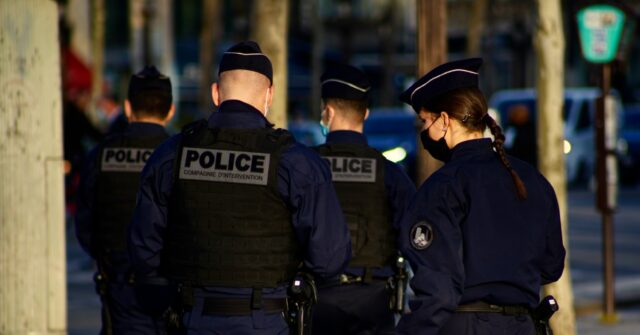On Thursday, France is set to host Israel in a Nations League soccer match at the Stade de France, but the atmosphere is marred by security concerns following recent violence in Amsterdam. French police are taking proactive measures by deploying a heavy security presence, with 4,000 officers and additional staff assigned to the stadium area and 1,500 more on public transport to manage safety. The incident in Amsterdam, which involved violent clashes related to a Europa League match between Ajax and Maccabi Tel Aviv, amplifies tensions, as these confrontations included attacks and antisemitic remarks directed at Maccabi fans. French police chief Laurent Nuñez emphasized the need for heightened vigilance, stating the aim is to ensure safety in public spaces and particularly near transport links before and after the match.
The atmosphere surrounding the event has drastically shifted from a celebratory mood, reminiscent of the just-completed Olympic Games, to one of apprehension. With tickets at the Stade de France expected to sell only at 25% capacity, the game could see around 20,000 spectators rather than the full 80,000. The presence of prominent political figures, including President Emmanuel Macron and previous presidents Hollande and Sarkozy, signals the importance and sensitivity surrounding this match. Meanwhile, the number of attending Israeli fans is drastically low, as only about 150 supporters are reported to be making the trip, constrained by travel advisories issued by Israel’s National Security Council, which recommended avoiding sports events abroad.
France’s Interior Minister Bruno Retailleau remarked on the importance of taking all necessary precautions, although he noted that no specific threats had been identified. He asserted that “zero risk does not exist” and highlighted the measures put in place for the match. An elite tactical team, RAID, will be present inside the stadium, and undercover officers will be positioned among the crowd to monitor any potential issues. Surveillance throughout the city has also been intensified, particularly near Jewish community sites, schools, and other symbolic locations to prevent any untoward incidents.
The backdrop of violence in Amsterdam paints a concerning picture; it involved assaults attributed to Maccabi fans against those perceived as Jewish and was characterized by destruction from groups of Maccabi supporters, armed with sticks, wreaking havoc in the streets post-match. These events have contributed to the heightened security concerns leading up to the game in Paris. Additionally, the city sees further tension through planned protests, including one by pro-Palestinian groups occurring concurrently with the match, indicating that the day will be charged with both sporting and political undertones.
Significantly, the memory of previous violence weighs heavily, especially remembering the tragic attacks in November 2015 during a friendly match at the Stade de France, where coordinated assaults resulted in numerous casualties. This grim history looms over the current event, resonating with France’s long-standing issues regarding national security in the face of sports events. As France’s coach Didier Deschamps pointed out, the players and organizers are navigating uncharted waters in light of the current climate of fear and unrest, adjusting their expectations and preparations accordingly.
As the match approaches, French authorities remain steadfast; allowing the France-Israel game to proceed as planned emphasizes the nation’s refusal to succumb to intimidation. Retailleau reaffirmed the government’s determination to hold the match in its intended venue, insisting that France will not yield to pressures to alter its sporting engagements. As the nation gears up for this encounter, the dual focus on security and the spirit of competition stands at the forefront, reminding all involved of the complexities of modern-day sports amid geopolitical tensions.

